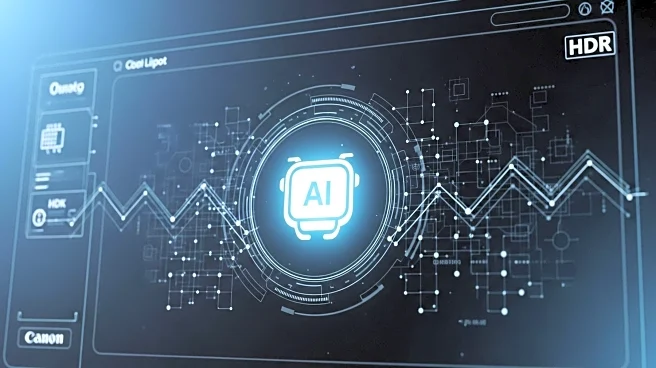What's Happening?
Bank of America has reported significant success with its AI chatbot, Erica, which has been used 3 billion times since its launch in 2018. Erica is designed to handle a wide range of customer service requests, and when it cannot resolve an issue, it transfers the customer to the appropriate department. The chatbot is predictive and analytical, capable of identifying patterns such as a customer's repeated low balance or multiple subscriptions to the same service. This development is part of a broader trend in the call center industry, where AI is increasingly taking over routine tasks, although human agents are still needed for complex issues. Companies like Klarna have experimented with AI, replacing a significant portion of their customer service agents with chatbots, but have found that human intervention is necessary for certain tasks, such as handling identity theft cases.
Why It's Important?
The integration of AI in customer service represents a significant shift in the industry, potentially reducing the need for human agents in routine tasks while increasing efficiency and cost savings for companies. However, this shift also raises concerns about job displacement, as AI could replace a substantial number of call center positions. Despite these concerns, the need for human agents remains, especially for complex issues that require nuanced understanding and decision-making. The development of AI-driven customer service solutions like Erica could lead to improved customer experiences, as AI can quickly identify and address common issues, reducing wait times and enhancing service quality. This trend may also influence public policy, as lawmakers consider regulations to ensure that call center jobs remain in the U.S.
What's Next?
As AI continues to evolve, companies are likely to further integrate these technologies into their customer service operations, potentially leading to more sophisticated AI systems that can handle increasingly complex tasks. The call center industry may see a shift towards fewer, but more highly trained human agents who can manage the most challenging customer service issues. Additionally, legislative efforts such as the 'Keep Call Centers in America Act' may impact how companies structure their call center operations, encouraging them to maintain jobs domestically. The ongoing development of AI technologies like OpenAI's ChatGPT Agent could further transform customer service, offering more intuitive and efficient solutions.
Beyond the Headlines
The rise of AI in customer service also presents ethical and cultural implications, as companies must balance efficiency with the need for human interaction in customer service. The potential for AI to handle sensitive issues, such as identity theft, raises questions about privacy and security. Furthermore, the shift towards AI-driven solutions may require new training and skill development for human agents, emphasizing the importance of collaboration between AI and humans. As AI becomes more prevalent, companies will need to address these challenges to ensure that customer service remains effective and responsive to consumer needs.










